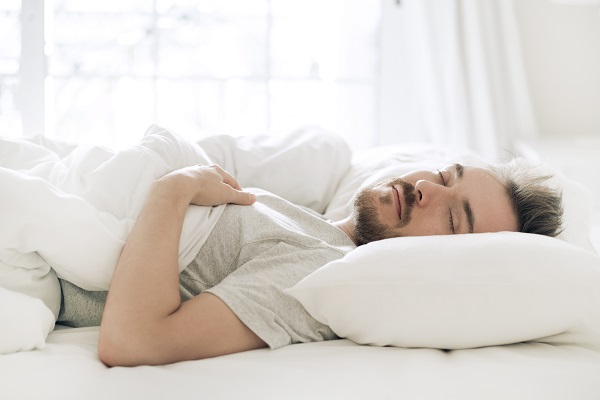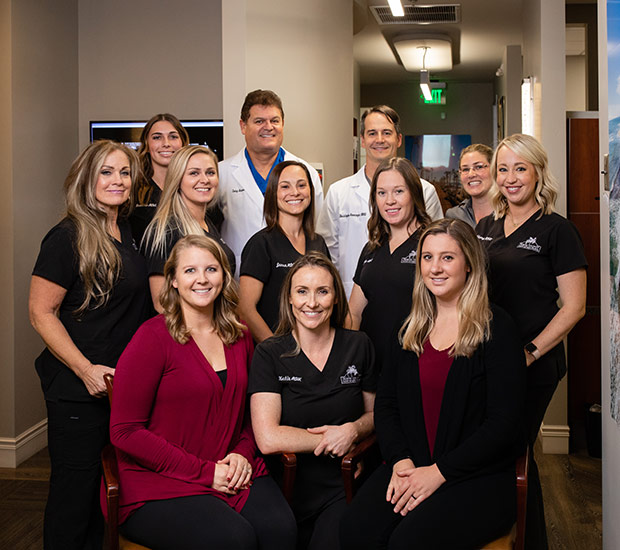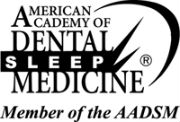Warning Signs of Sleep Apnea

Sleep apnea is a potentially serious condition in which your breathing starts and stops repeatedly during sleep. It is fairly common and fortunately, it is also treatable. If you think you are dealing with sleep apnea, it is important to obtain a diagnosis and get treatment so you can avoid severe side effects of the condition.
The first step toward diagnosis is to see a dentist. It helps to learn about sleep apnea’s warning signs so you can act accordingly. After going through the article, contact the general dentistry office for a consultation if you believe the symptoms apply to you.
The signs of sleep apnea
The most prevalent kind of sleep apnea is obstructive sleep apnea (OSA). OSA occurs when the soft palate, tongue, or other tissues of the mouth, palate, or throat obstruct the airway. Another type, central sleep apnea, occurs when the brain region responsible for breathing fails to transmit the proper signal for breathing functions.
The term “mixed sleep apnea” refers to a condition where patients experience both central and obstructive sleep apnea. This can also be referred to as complex sleep apnea syndrome or treatment-emergent central sleep apnea.
A person with sleep apnea may stop breathing for about 20-30 seconds at a time, and the event may occur multiple times each hour. Indeed, individuals with severe sleep apnea may have breath stoppages hundreds of times during the night without realizing it. The following are five warning symptoms of sleep apnea:
1. Drowsiness or weariness throughout the day
Sleep apnea often causes patients to feel weary and drowsy throughout the day due to oxygen deprivation and interruptions to deep restorative sleep. If patients feel exhausted and have trouble staying awake throughout the day, sleep apnea could be hurting their sleep quality despite getting a whole night of sleep.
Since sleep governs a broad range of vital body functions, inadequate sleep may significantly influence one’s health, leading to a number of disorders ranging from hormone disturbance to immunological failure.
2. Snoring
Snoring is not a universal sign of sleep apnea, but snoring is a significant warning symptom of the condition. Numerous folks are completely unaware that they snore, but those who share a bed with another person can ask about any noises they make while sleeping. Snoring, snorting, and gasping are all common sleep apnea warning signs. The louder the snore, the higher the likelihood of sleep apnea.
3. Recurrent urination at night
When it comes to key warning symptoms of sleep apnea, waking up at night to pee is as prevalent as snoring. Indeed, the American Sleep Foundation reports that approximately 85 percent of persons with sleep apnea have frequent overnight urination. Awakening to pee once throughout the night is not a reason for panic and is common in the general population. However, waking up many times throughout the night to pee might be an indication of sleep apnea, especially if a person is not drinking an excessive amount of fluids before going to bed.
4. Restlessness during sleep
Getting good sleep is sometimes difficult for persons who suffer from sleep apnea. Restlessness could also be an indication of the condition. Patients with sleep apnea may find themselves tossing and turning uncomfortably during sleep. This is often the result of the brain sending signals to wake up and resume breathing.
5. Dry mouth upon waking
People with sleep apnea often wake up in the morning with a dry mouth or the feeling of a sore throat. This can be due to sleeping with an open mouth, which can dry out the throat and the airway. This is especially prevalent with OSA and therefore can be seen as a warning sign. So while sleep apnea itself may not directly cause dry mouth, it can force mouth breathing at night (and in some cases, during the daytime as well). Note that the use of a CPAP machine — often used by sleep apnea patients — can also cause dry mouth.
Conclusion
Sleep apnea is not a condition that should be ignored, and it is more than just snoring (although snoring can be an important warning sign). A complete sleep study can assist you in determining the cause of your problems. If sleep apnea is discovered, the dentist will develop a treatment plan to address your symptoms, improve your sleep apnea, and help you feel and perform better. For further information on sleep apnea, diagnosis and treatment, contact the dental office for an appointment.
Request an appointment here: https://www.ultimatesmiles.com or call North County Cosmetic and Implant Dentistry at (760) 940-2273 for an appointment in our Vista office.
Check out what others are saying about our dental services on Yelp: Do I Have Sleep Apnea in Vista, CA.
Recent Posts
CPAP alternatives that may be a good option for you if you suffer from sleep pnea. The first alternative to looking into would be an oral appliance. These appliances are designed to keep the airway open during sleep and should help with snoring as well as breathing difficulties. This article will cover three different types…
Sleep apnea is a medical condition that can be treated through oral appliance therapy as well as CPAP machines. Both forms of treatment have been proven successful, which is why they are both highly recommended. However, both methods are also quite different, which is why it is necessary to be aware of how both work. Oral…
Dealing with sleep apnea may seem like more of a problem for others around and not the person who has the condition. With snoring being the leading symptom, many people complain that they are unable to get a good night’s sleep with a partner with this condition. However, apnea can be a dangerous condition, and…
Maintaining good oral health is essential for overall well-being. One of the key professionals who play a vital role in ensuring optimal oral health is the Registered Dental Hygienist (RDH). Let’s explore how regular visits to your RDH contribute to your overall health while giving you a healthy smile.The term “Certified Dental Hygienist” is actually…







